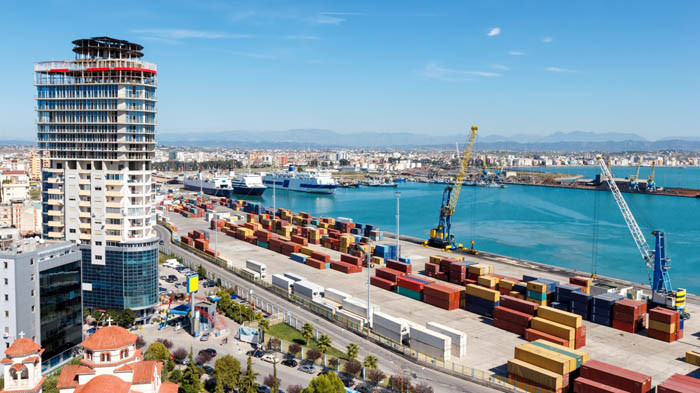Albania has emerged as an unlikely success story amid the Europe-wide economic crisis caused by the Russia-Ukraine conflict.

Albania becomes a surprise success story in times of crisis. Photo: emerging-europe.com
Albania is becoming a surprise success story in a time of crisis. Forecasts show it will be one of the fastest-growing economies in emerging Europe over the next three years. The country has one of the lowest inflation rates in the region in 2022 and its lek currency is at a record high against the euro.
Unlike the rest of the region, which is at risk of recession by 2023 due to inflation, Albania is expected to maintain growth rates significantly higher than the average for Central and Southeastern Europe.
This comes after a better-than-expected 2022, when Albania posted economic growth of 4.8%. As a result, the government has maintained its 2023 GDP growth forecast at 2.6%.
Meanwhile, the World Bank initially forecast Albania's growth at 2.8% in 2023, but later increased its forecast to 3.3% in 2023 and 2024.
For its part, the International Monetary Fund (IMF) also forecasts that Albania's economy will grow by 3.3% in 2023, while the Vienna Institute for International Economic Studies (WIIW) ranks Albania as one of the three fastest growing countries among 23 assessed countries in Central, Southeastern and Eastern Europe and Central Asia.
According to WIIW, growth in Albania, along with other Southeast European economies such as Kosovo and Romania, will consistently outpace the broader region's average. WIIW forecasts Albania's growth at 3.3% in 2023, 3.8% in 2024 and 4.0% in 2025.
“This is a real success story of growth in this recession in south-east Europe,” Richard Grieveson, deputy director of WIIW, commented in a webinar.
Albania's inflation, while rising in the second half of 2021 and throughout 2022, has not risen as rapidly as in other countries in the region. It peaked at 8.3% in October last year - well below the double-digit rates seen in some European countries - and has since fallen sharply.
The latest data shows inflation fell to an average of 6.5% in the first quarter of 2023, down from 7.9% in the previous quarter. The decline was particularly pronounced in March, when annual inflation fell to 5.3%.
Ivailo Izvorski, chief economist for Europe and Central Asia at the World Bank, attributes Albania's relatively low inflation to government-imposed price caps and the fact that the country generates 100% of its electricity from hydropower.
A recent World Bank report said that Albania's thriving hydropower sector has helped it mitigate the negative impacts of Europe's ongoing energy crisis.
Another factor is the high lek/euro exchange rate, combined with continued steady growth in domestic economic activity. The strong lek has also helped Albania ease its debt burden after borrowing during the Covid-19 pandemic to support the economy.
In addition, Albania's public debt in the first quarter of 2023 decreased to 63.27% of the country's GDP, compared to 64.58% at the end of 2022.
According to Tin Tuc Newspaper